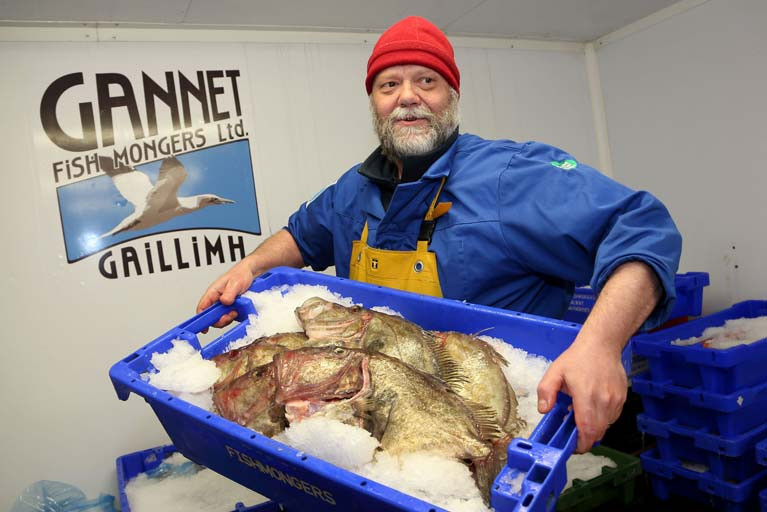A major west coast retail fish supplier has pledged to sell only Irish-caught fish and shellfish during the current Covid-19 restrictions to support the Irish inshore fleet.
Parisian-born Stefan Griesbach of Gannet Fishmongers in Galway says that he is “out the door” with online orders.
He told The Irish Examiner that the current crisis caused by the pandemic is an “opportunity for the Irish inshore fleet to reassert itself”.
Larger vessels rely on export markets for the longer trips, involving substantial fuel bills, while the inshore sector is “ideally placed” to ensure fresh food is supplied to the domestic Irish market, Mr Griesbach noted.
Mr Griesbach, whose 15-year old company is using 100 per cent compostable and sustainable packaging, was commenting during a week when a dramatic collapse in export markets for seafood has hit the Irish whitefish fleet.
Gannet Fish, based in Ballybane, Galway, normally trades in the Galway St Nicholas's church market on Saturday, but this has now closed as part of the local authority's response to Covid-19.
The company is taking telephone orders, as well as online bookings through eatmorefish.ie, and is offering deliveries of fish over 15 euro free to senior citizens.
For more in the Examiner, click here


























































